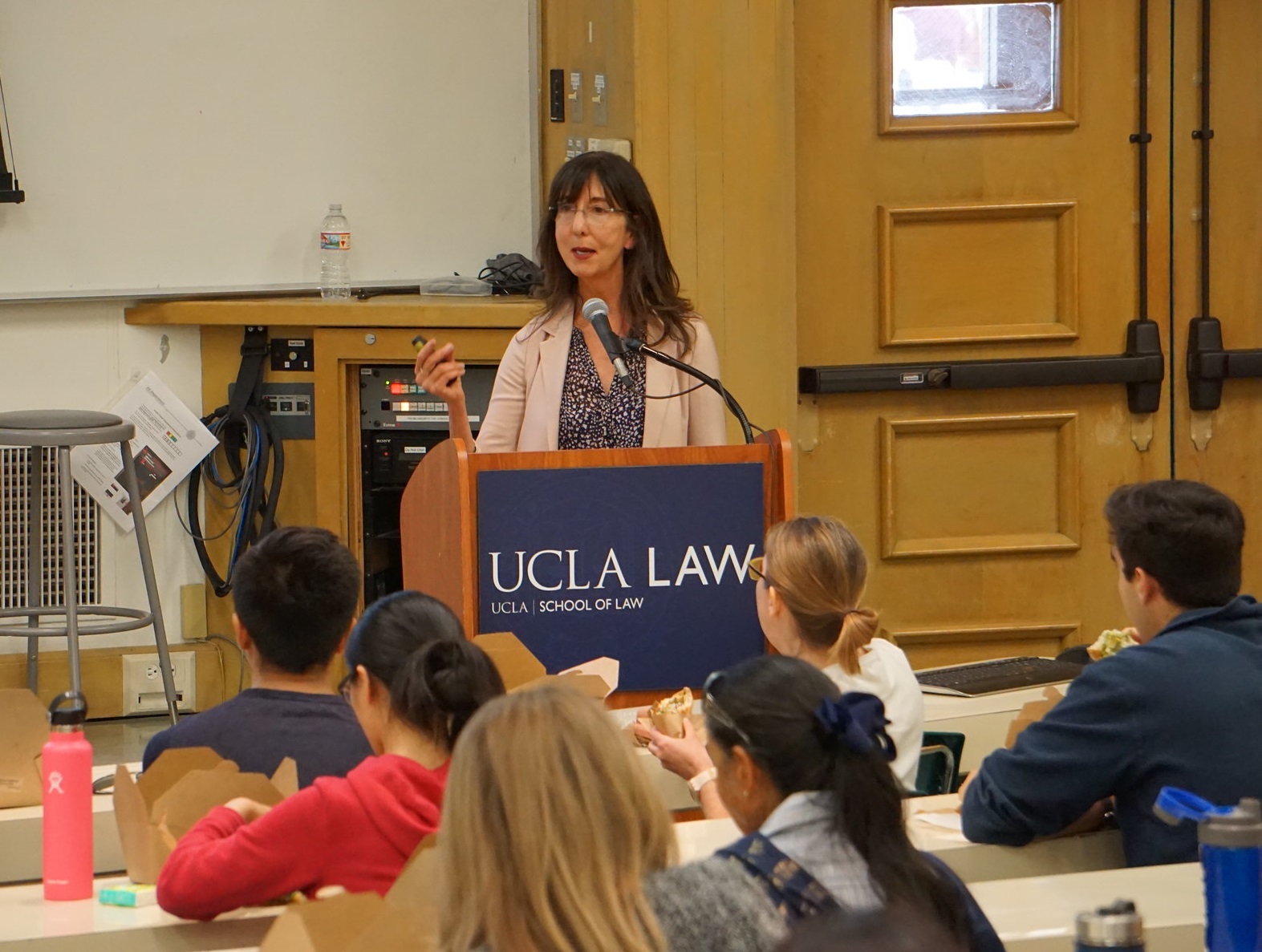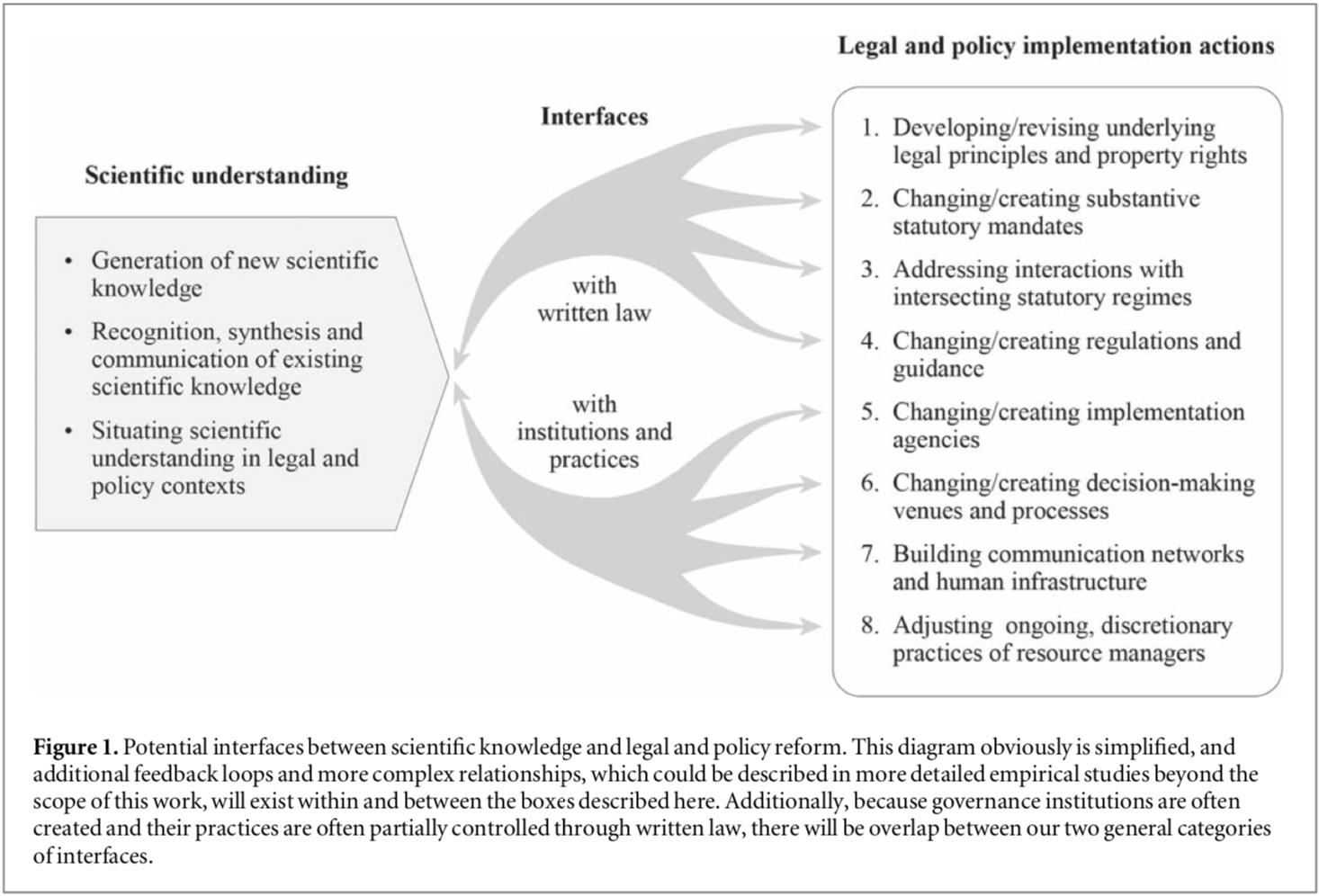Region: International
China’s Energy Transition
Q&A with Barbara Finamore, Senior Attorney & Asia Senior Strategic Director, NRDC
Barbara Finamore is an attorney and leading expert for Natural Resources Defense Council on a wide range of China climate, energy, and environmental issues. I worked with Finamore to found NRDC’s Beijing office in 2006. In her new book Will China Save the Planet?, Finamore explores efforts by China, today the world’s largest emitter of …
Continue reading “China’s Energy Transition”
CONTINUE READINGCalifornia groundwater management, science-policy interfaces, and the legacies of artificial legal distinctions
By Dave Owen and Michael Kiparsky
One of the many noteworthy features of California’s Sustainable Groundwater Management Act (SGMA) is that it requires local government agencies to consider and address the effects of groundwater management upon interconnected surface water. That requirement is an important step towards rationalizing California water management, which has long treated groundwater and surface water as separate resources. …
CONTINUE READINGHappy Tax Day!
It’s the perfect time to talk about a carbon tax.
Justice Oliver Wendell Holmes once said that taxes are the prices we pay for a civilized society. A carbon tax, if we ever get one, might turn out to be the price we pay for a sustainable planet. I’m not wedded to it as a tool for cutting carbon, and I don’t think it would …
Continue reading “Happy Tax Day!”
CONTINUE READINGRay of Hope in Eastern Europe
Environmental Issues Help Foster Victory for Democratic Forces
The world got some very good news yesterday when political newcomer Zuzana Caputova, a political newcomer, won a smashing victory in Slovakia’s President elections. Unlike the right-wing authoritarians like Hungary Viktor Orban and Poland’s Law and Justice Party, which have dominated east European politics in recent years, Caputova, is a political liberal, strongly committed to …
Continue reading “Ray of Hope in Eastern Europe”
CONTINUE READINGI Suppose We Can Just Hope That EIA Is Wrong
The federal estimate of energy-related carbon emissions in 2050 should get our attention.
The U.S. Department of Energy’s Energy Information Administration (EIA) issues projections for future energy use across all sectors of society. They aren’t really predictions of our energy future — they are more like conversation starters. In fact, some researchers suggest that EIA shows a consistent bias by forecasting more energy use than actually occurs. Yet, …
Continue reading “I Suppose We Can Just Hope That EIA Is Wrong”
CONTINUE READINGGoverning Geoengineering at the United Nations? No, at Least Not Now
A proposed resolution falters at the UN Environment Assembly
At this week’s UN Environment Assembly, countries’ representatives debated a draft resolution regarding climate geoengineering. Unable to come to agreement, it was withdrawn Wednesday. This is not surprising to me, as — for the most part — leaders presently lack political incentives to take action. I am also not particularly disappointed, because a counter-productive resolution seemed fairly …
Continue reading “Governing Geoengineering at the United Nations? No, at Least Not Now”
CONTINUE READINGBottoms-Up! An Emerging New Governance System (4)
We can think of the energy system as a kind of ecosystem, and renewables as an invasive species.
As I’ve discussed the earlier three posts in this series, it is possible to imagine a cycle of positive feedback, in which the history of past climate efforts increases the likelihood of future ones and even draws more jurisdictions into the effort. But it is also possible to imagine that bottom-up efforts might not catch …
Continue reading “Bottoms-Up! An Emerging New Governance System (4)”
CONTINUE READING…For Fighting Over
Nuclear-Armed India Announces Water Cut-Off To Nuclear-Armed Pakistan
Uh-Oh: Union minister Nitin Gadkari in a tweet has confirmed that India would ‘choke’ the water supply to Pakistan in light of the Pulwama attack. The move comes in the backdrop of the February 14 attack on CRPF convoy in Pulwama in Jammu and Kashmir, which resulted in the death of 40 CRPF personnel. India …
Continue reading “…For Fighting Over”
CONTINUE READINGBottoms-Up! An Emerging New Governance System (3)
Bottom-up strategies can ultimately pave the road for stronger international agreement.
It is difficult to measure the extent of positive feedback between climate initiatives. But it seems evident that such feedback does exist. A major climate initiative in one jurisdiction seems to encourage climate action elsewhere. This makes climate action a more appealing prospect for any individual jurisdiction, because by acting it can increase climate actions …
Continue reading “Bottoms-Up! An Emerging New Governance System (3)”
CONTINUE READINGChina in the Global Environment — Q&A with Isabel Hilton, Founder and CEO of chinadialogue.net
Isabel Hilton is a leading journalist whose current work spotlights the impact of China’s growing economy on people and the environment. Her work has appeared in the Financial Times, The New York Times, the Los Angeles Times, The Guardian, the New Yorker, and many other publications. In 2006, Hilton launched chinadialogue.net, a groundbreaking website that publishes reporting and analysis …
CONTINUE READING











